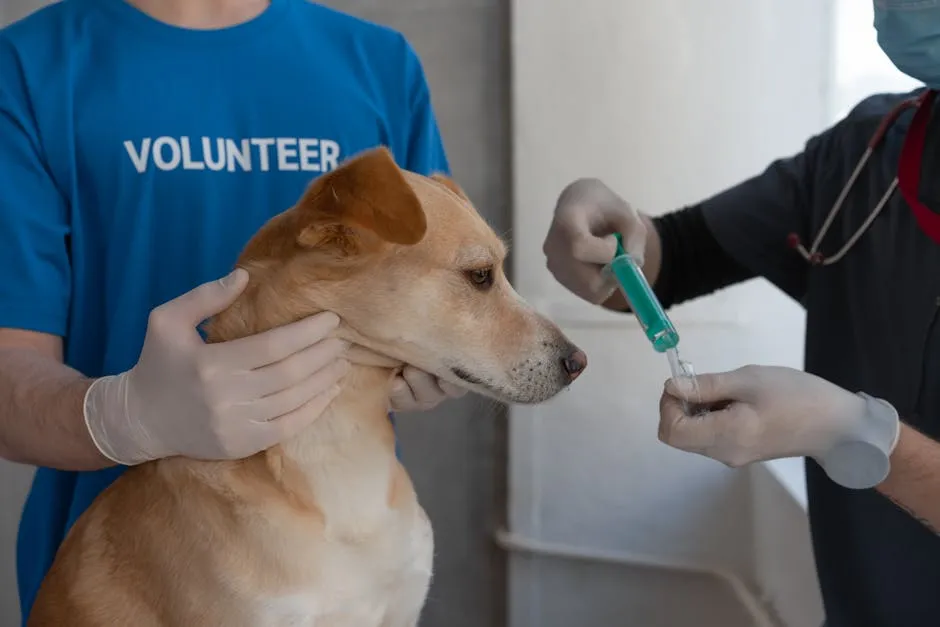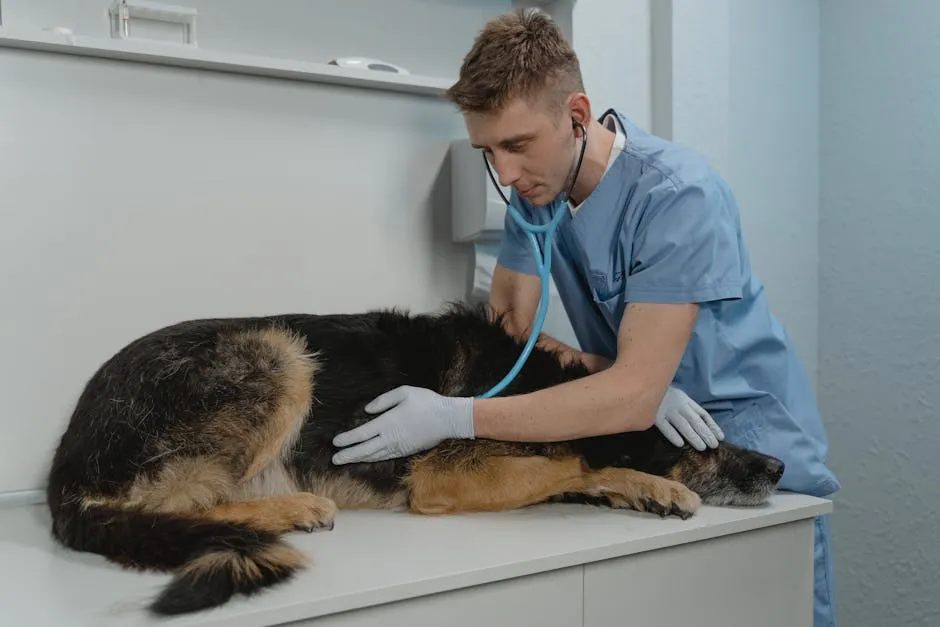
Why Did Our Chinchilla Suddenly Die?
Introduction
Losing a chinchilla unexpectedly can be heart-wrenching. These small creatures quickly become cherished members of our families. Understanding the causes of sudden death is vital. It can help you navigate your grief and prevent future heartaches.
Summary and Overview
In this article, we’ll discuss various health issues that chinchillas face, which can lead to sudden death. While chinchillas are generally resilient pets, they are not immune to serious health problems. Respiratory infections, dental issues, and gastrointestinal distress are common culprits. We will also cover the importance of recognizing symptoms early and maintaining consistent veterinary care. By understanding these factors, you can help ensure your chinchilla lives a long, healthy life.
If you’re looking for ways to pamper your chinchilla, consider investing in a Chinchilla Dust Bath Powder. This little luxury not only keeps their fur clean and healthy but also provides them with a delightful activity that they will absolutely love.

Understanding Chinchilla Health
Common Health Issues
Chinchillas can experience several health problems. Respiratory issues are prevalent, often triggered by environmental factors. Dusty or humid conditions can exacerbate these problems. Dental issues, particularly malocclusion, also pose significant risks. Overgrown teeth can cause pain and make eating difficult. Gastrointestinal concerns, such as bloat or stasis, can arise from dietary mistakes.
Regular vet visits are essential for preventive care. A veterinarian can spot potential issues early, ensuring your chinchilla stays healthy. Monitoring your pet’s behavior and eating habits is equally important. Changes in routine can signal underlying health problems. Always consult a vet at the first sign of trouble.
By staying informed and proactive, you can help your chinchilla lead a happy, healthy life. Don’t forget to provide them with chinchilla chew toys to keep their teeth healthy and their spirits high!

Possible Causes of Sudden Death
Respiratory Infections
Causes and Symptoms
Chinchillas can suffer from respiratory infections. These infections often stem from environmental issues. Dusty air, high humidity, and sudden temperature changes can trigger problems. Common symptoms to watch for include sneezing, coughing, and nasal discharge. If your chinchilla shows difficulty breathing, it’s crucial to act fast.
Stress can also worsen respiratory infections. Changes in habitat or routine may put your chinchilla on edge, making them more susceptible. Keeping a calm environment is vital for their health. Regular vet check-ups will help catch these issues early.
To ensure your chinchilla stays hydrated, don’t forget to invest in a reliable Chinchilla Water Bottle. A good water source is essential for keeping your furry friend healthy!

Heatstroke
Risks and Prevention
Heatstroke is a significant risk for chinchillas due to their dense fur. They thrive in cooler environments, ideally between 65°F and 72°F. If temperatures exceed these levels, your chinchilla can quickly overheat. Signs of heatstroke include excessive panting, drooling, and lethargy.
To prevent overheating, maintain a cool living space. Avoid direct sunlight and provide plenty of fresh air. Use fans or air conditioning if necessary. Regularly check the temperature to ensure a safe environment. Always provide ample water to keep your chinchilla hydrated.
Being vigilant about these factors is crucial for your chinchilla’s well-being. With proper care and attention, you can help prevent sudden health crises. For a cozy retreat, consider a Chinchilla Hideout to give your pet a safe space to cool down!

Dental Problems
Malocclusion and Its Effects
Dental issues are serious for chinchillas. Malocclusion, where teeth misalign, is common. It causes overgrown teeth that can lead to severe pain. If left untreated, this can result in significant health complications. Your chinchilla may stop eating, leading to rapid weight loss. Eventually, malocclusion can cause sudden death. Regular dental checks can help prevent these issues. Ensure your chinchilla has plenty of chew toys to keep their teeth healthy.
For top-notch dental care, consider investing in Pet Grooming Brush. Keeping their fur healthy also contributes to overall well-being!

Gastrointestinal Issues
Importance of Diet and Symptoms
Gastrointestinal (GI) problems are a significant concern for chinchillas. Bloat and stasis are common issues that can arise from poor diet. Symptoms include lethargy, loss of appetite, and a swollen belly. If your chinchilla appears uncomfortable or stops eating, seek veterinary help. A balanced diet is crucial to prevent these issues. Feed your chinchilla high-quality hay and limit sugary treats. Keeping track of their eating habits helps in detecting potential problems early.
Gastrointestinal issues like bloat can be serious for chinchillas. It’s essential to understand how to manage these conditions. why am i so bloated i look pregnant

Listeriosis
Overview of the Disease
Listeriosis is a bacterial infection that can be deadly for chinchillas. Caused by Listeria monocytogenes, it spreads through contaminated food or environments. Symptoms may include weight loss, diarrhea, and neurological issues like head tilt. Infected chinchillas can deteriorate quickly, leading to sudden death. It’s vital to maintain cleanliness in their habitat and provide safe food. If you suspect listeriosis, consult a veterinarian immediately for diagnosis and treatment options.

Other Possible Causes
Chinchillas can face several less common health risks. Traumatic injuries from falls or accidents can lead to sudden death. Poisoning is another serious concern, often from ingesting harmful substances. Genetic conditions can also affect their health, leading to unforeseen complications. Regular vet visits and a safe environment can mitigate these risks. By staying vigilant, you can help ensure your chinchilla remains healthy and happy.

Grieving Process
Losing a chinchilla can feel devastating. These furry friends become part of our families. The emotional toll is often profound. You may experience feelings of sadness, guilt, or confusion. It’s normal to grieve deeply for a pet who brought joy and companionship.
Coping with this loss can be challenging. Allow yourself to feel your emotions. Talk about your chinchilla with friends or family. Sharing fond memories can help ease the pain. Remember, it’s okay to cry and express your feelings. Seek support from pet loss groups or forums. Connecting with others who understand can be comforting.
Consider creating a small memorial. This could be a photo album or a special spot in your home. Engaging in these activities can help you process your grief. Each person’s grieving journey is unique, so give yourself time. Healing takes patience, but you are not alone. To capture those precious memories, check out a Pet Memorial Frame to cherish their spirit.

Supporting Remaining Pets
After losing a chinchilla, your other pets may also feel the impact. They might experience stress or confusion. It’s essential to provide extra care and attention during this time.
Keep their environment calm and stable. Stick to their normal routines as much as possible. This familiarity can provide comfort. Spend quality time with your remaining chinchilla. Offer treats and engage in play to help lift their spirits.
Monitor their behavior closely. Look for signs of distress, such as hiding or reduced appetite. If you notice anything concerning, consult a veterinarian. Consider introducing a new companion if your pet seems lonely. However, take time to assess their emotional state first. A Pet First Aid Kit can also be a smart investment to ensure you’re prepared for any emergencies!
Support and love can help your surviving chinchilla heal. By being attentive and caring, you can ease their grief, too.

Stress Reduction
Minimizing stress is crucial for your chinchilla’s health. Stress can lead to severe health issues, including sudden death. Here are some tips to create a calm environment for your furry friend:
1. Consistent Routine: Stick to a regular feeding and handling schedule. Chinchillas thrive on predictability.
2. Quiet Environment: Keep their living space away from loud noises. Sudden sounds can frighten them.
3. Safe Space: Provide hiding spots in their cage. This gives them a retreat when they feel threatened.
4. Gentle Handling: Always handle your chinchilla gently. Avoid sudden movements that might startle them.
5. Social Interaction: Spend quality time with your chinchilla. They are social creatures and benefit from interaction.
6. Limit New Experiences: Introduce new items or changes slowly. Rapid changes can be overwhelming for chinchillas.
7. Healthy Diet: Maintain a balanced diet. A proper chinchilla diet can reduce stress and promote overall well-being.
By following these stress reduction strategies, you can help your chinchilla stay healthy and happy, preventing potential health issues. Consider a Chinchilla Food Pellets as part of their regular diet to ensure they get the right nutrition!

Conclusion
Understanding the potential health risks that chinchillas face is essential for preventing sudden deaths. Regular veterinary check-ups, maintaining a balanced diet, and minimizing stress are crucial factors in ensuring your pet’s well-being. The emotional impact of losing a beloved chinchilla can be profound. So, remain vigilant and proactive in caring for your pets. Remember, your chinchilla relies on you for a happy and healthy life. For a comprehensive guide, consider getting a Chinchilla Health Guide Book to stay informed!

FAQs
What should I do if my chinchilla shows signs of illness?
If your chinchilla shows signs of illness, such as lethargy or appetite loss, act quickly. First, monitor their behavior and eating habits. If symptoms persist, contact your veterinarian immediately. Early intervention can prevent more severe health issues.
How can I tell if my chinchilla is overheating?
Signs of overheating in chinchillas include excessive panting, drooling, and lethargy. If you notice these symptoms, move your chinchilla to a cooler area immediately. Ensure they have access to fresh water and monitor their temperature regularly. Keep their living space cool, ideally between 65°F and 72°F.
What is the average lifespan of a chinchilla?
Chinchillas typically live between 10 to 15 years, depending on their care. Factors affecting their lifespan include diet, living conditions, and overall health. Regular veterinary care is vital for monitoring their health and extending their life.
Can chinchillas die from loneliness?
Chinchillas are social animals and may experience stress from loneliness. While it’s not common for them to die from loneliness alone, it can lead to health issues. Consider having at least two chinchillas or providing ample social interaction to keep them happy.
What are common dietary mistakes that can lead to health issues?
Common dietary mistakes include feeding too many sugary treats or improper hay. Ensure your chinchilla has a balanced diet high in hay and limited in treats. Avoid high-calcium foods, as they can lead to bladder stones. Always provide fresh water and monitor their eating habits closely.
Please let us know what you think about our content by leaving a comment down below!
Thank you for reading till here 🙂 And remember, a Pet Carrier Backpack can be a great way to safely transport your chinchilla on fun outings!
All images from Pexels




